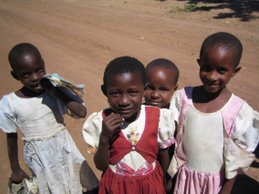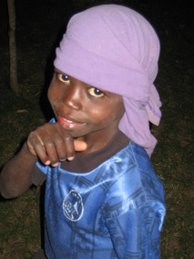Mazungu na Bebe
Friends will know that as much as I’ve enjoyed coming back to Rwanda again and again, I’ve found the people much more reserved than in other parts of Africa and being here long term can be a bit lonely.
Travelling with a baby has completely changed that.
From the moment we stepped off the plane – when someone from immigration saw me crushed under the weight of bub and luggage, asked me to sit down, took our passports to be stamped (in front of the massive queue), came back and carried all my suitcases through the exit – people have gone out of their way to help us. Frankly, I’m not sure I would have managed, especially that first week on my own, without all the kindness we’ve received from strangers.
At ten months the bub learned to crawl and became much more difficult to “manage.” Unfortunately this coincided with the beginning of the trip and brought on a new desire to do everything by herself. On the plane, she insisted on practicing this new crawling trick up and down the aisles for at least half of the 16 or so hours we spent travelling. Virtually everywhere we go here she adamantly demands to be let down to explore. Instead of tutting at her filth, people here laugh and wave and talk to her constantly. She’s now feeding herself proper adult food, but oh boy is it messy. As we have no highchair, generally I scoop some of what we’re eating into the pocket of her bib and she picks out what interests her and eats it. She pops it in her mouth. She spits it out again. She holds it up to examine it. Then she might pop it back in or she might throw it on the floor. The Cripple and I have wondered (very gratefully) at the extraordinary amount of patience and indulgence she is met with everywhere we go. It is impossible to imagine going into restaurants in the “developed” world and being met with the same genuine happiness and good will we do here. Even on repeat visits! At the guesthouse in Byumba we’ve stayed in for a couple of weeks (that’s a couple of weeks of at least two meals a day throwing grub on the floor) the waiters know her by name and call to her gleefully when we arrive, often picking her up (grubby mitts and all) for cuddles.
She’s now feeding herself proper adult food, but oh boy is it messy. As we have no highchair, generally I scoop some of what we’re eating into the pocket of her bib and she picks out what interests her and eats it. She pops it in her mouth. She spits it out again. She holds it up to examine it. Then she might pop it back in or she might throw it on the floor. The Cripple and I have wondered (very gratefully) at the extraordinary amount of patience and indulgence she is met with everywhere we go. It is impossible to imagine going into restaurants in the “developed” world and being met with the same genuine happiness and good will we do here. Even on repeat visits! At the guesthouse in Byumba we’ve stayed in for a couple of weeks (that’s a couple of weeks of at least two meals a day throwing grub on the floor) the waiters know her by name and call to her gleefully when we arrive, often picking her up (grubby mitts and all) for cuddles.
We’ve received invitations into people’s homes, we’ve been given lifts and dinner; we’ve had people offer help, and extend friendship, almost constantly. I’ve noticed a big difference in the way that I’ve been perceived and the way people have responded to me both professionally and personally. Being here as a mother rather than an eccentric single traveller seems to have increased my standing and trustworthiness. Each time I go into the camp women ask after the little one and many of them give me their own babies to hold. They’ve dubbed me “mazungu na bebe.”







